The Everything Store. Jeff Bezos and The Age of Amazon
“The Everything Store” offers an intrinsic view of the harsh business world. The book is divided into three parts, each part describing how Amazon transcend from a book selling store to everything store. The vision was birth by Jeff Bezos, a dogged visionary and the founder of Amazon. Brad Stone breaks down the book into three parts as said earlier, the faith which describes the early years of Amazon, Literacy influence which explains the days of struggle and the Missionary which define the success stories of Amazon. The book tells how Amazon started up with a small family like business on a shoestring budget. What keeps the dream growing is the success stories. No matter how little the success might be or how large, they celebrate every success. This helps to keep the goals, achievement, and expectations attainable.
Jeff took every possibility he has to develop himself and learn something. Frequently he quotes Alan’s observation that “Point of view is worth 80 IQ Points”. This is a reminder that looking at things in a new way can enhance one’s understanding. Jeff made customer satisfaction his priority which leads Amazon to the continual development of new features that traditional publishers often find doubtful such as the customer review. He also initiated a platform for individuals to sell new products. He was able to realize the potential in e-commerce over traditional businesses and explored it with some features like product recommendation. Jeff has a saying that you can work long hard and smart, but in Amazon, you can only pick two out of three. Over the years, Amazon approach has been to establish fulfillment of centers in economically weak areas to exploit cheap labor and the ability to fire worker once the season is over.
The author made an actionable point which is one of the key takeaways of the book; he said marketing budget could be well spent on enhancing customers experience instead of tweaking the website, improving services or reducing prices. Not all product and companies can be feed on marketing because sometimes achieving ROI on marketing campaigns is simply not possible. When the company reached success, what matters is the perception of the success of the company. He listed all the virtues companies need to have in order to be considered cool.
The Cool and Not Cool Effect list includes: “Rudeness is not cool. Defeating tiny guys is not cool. Close-following is not cool. Young is cool. Risk taking is cool. Winning is cool. Polite is cool. Defeating bigger, unsympathetic guys are cool. Inventing is cool. Explorers are cool. Conquerors are not cool. Obsessing over competitors is not cool. Empowering others is cool. Capturing all the value only for the company is not cool. Leadership is cool. Conviction is cool. Straightforwardness is cool. Pandering to the crowd is not cool. Hypocrisy is not cool. Authenticity is cool. Thinking big is cool. The unexpected is cool. Missionaries are cool. Mercenaries are not cool.”
The Everything Store also tells about how Jeff makes most of his decisions, why he made it and how it brings about customer satisfaction. There are too many takeaways from this book and can only be tapped into if you get a copy.
THE BIG THREE – KEYPOINTS
Keep Point #1: Reinvent your business model without completely renegotiating it
Keep Point #2: Never allow cynics to change your mind
Keep Point #3: Involve your employees in your decision-making process. Let every voice be heard.
One Last Thing
“There’s so much stuff that has yet to be invented. There’s so much new that’s going to happen…It is still Day 1 in such a big way” – Jeff Bezos
